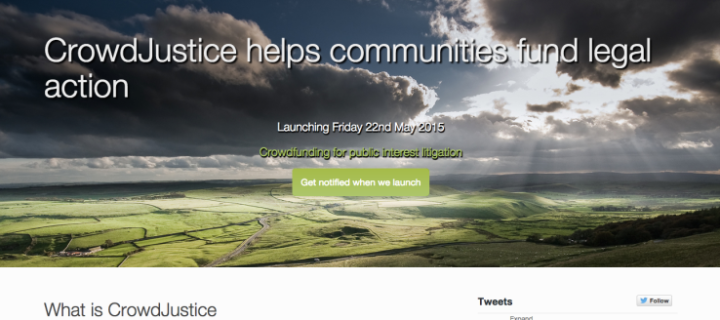
10 questions to ask at the end of an interview
September 21, 2016
A Review of GDL Study Guides
November 4, 2016Funding a judicial review claim can often become difficult, especially when the excessive costs of some recent cases is viewed. Funding these cases can often amount to tens of thousands, or in some cases, hundreds of thousands of pounds in legal fees. There are, of course, several sources of financial assistance, such as legal aid, or conditional fee agreements, however, with only 3 months to file a claim, it can often be difficult to make an application within this time frame. Funding a case becomes even more problematic if a claim fails to pass the tests required for funding. It is clear, therefore, that funding can often be a tough obstacle to overcome in bringing a claim before the court.
There is, however, a fast-growing source of funding for public law cases: crowdfunding. Crowdfunding relies on small donations from large groups of people, which build up the funds required to cover the legal fees. Therefore, the main types of cases which benefit from crowdfunding campaigns are those which affect a large community, a large area, or an issue which is viewed as being of high importance to members of the public. The only hurdles are that most crowdfunding websites require the party to have found a lawyer who is willing to represent them in their case, and they must prove that their case would have a wider community benefit.
One crowdfunding website which has had great success is CrowdJustice. For example, the ‘Save Sheffield’s Trees’ campaign is an incredibly simple one, and doesn’t appear to be something which might have huge support, considering the lack of action on matters relating to the environment and the countryside in England. And yet, with 20 days still remaining, the campaign has £16,604 pledged of its £18,000 target. This evidences how such a simple case can gain a large amount of financial assistance, where the case affects a large community, and how Crowdfunding can be hugely beneficial for these cases.
Crowdfunding can also be a very powerful source of funding in high profile cases, which affect people on a UK-wide level. An example of this is the challenge by junior doctors against the imposition of new contracts by Jeremy Hunt, the current Secretary of State for Health. Round 1 of funding reached £133,741 of its £125,000 target, and was backed by 4,465 people. The second round then raised £52,086 of its £33,000 target, and was backed by 1,803 people. Finally, over £150,000 was raised in just 4 days, to cover a cost protection order. This eventually reached £151,625 of its £150,000 target, and was been backed by 5,113 people.
The fact that this campaign was able to raise such a large amount of funding shows how effective crowdfunding can be, in relation to issues which affect a large portion of the UK public. Crowdfunding for public law cases can also lead to the quashing of executive decisions which unfairly affect specific groups or areas in the UK. High-profile cases such as this can also have a positive knock-on effect. This is because, where there are unused funds at the end of a case, smaller donations can be transferred to similar challenges to assist with their funding, or they can be donated to a charity.
Furthermore, the CrowdJustice website contains a blog, which provides helpful information for those considering crowdfunding, such as ‘5 top tips for successfully crowdfunding a legal campaign’. This improves the chances of campaigns where the claimant is willing and able to put in the time to read the advice given, but also simplifies the process of crowdfunding to those who may have little knowledge about raising funds. This could lead to websites such as CrowdJustice becoming a more suitable method of funding than some of the traditional methods mentioned earlier, which can often be complicated and daunting to those with little experience of the law. It also means that potential claimants are more likely to know where they stand, with regards to funding.
It should be pointed out that crowdfunding is not restricted to cases with legal fees tens of thousands. The ‘Support Residents’ Rights to Environmental Protection’ campaign is currently crowdfunding for a target of just £700.
The site’s slogan is ‘The law should be available to everyone’ shows that the website can be used for any type of case which requires funding, as long as they can secure representation and prove that their case has a wider community benefit.
CrowdJustice have not restricted their resource to public law cases. In fact, crowdfunding contributed to one of the largest changes in the criminal common law in recent history. On the 6th of August, the Joint Enterprise Not Guilty by Association (JENGbA) group began a campaign which would allow them to intervene in the case of R v Jogee in the Supreme Court. JENGbA successfully reached their initial £10,000 target, and earlier this year, the Supreme Court allowed the appeal, and reversed some of the long-standing case law relating to joint enterprise.
Crowdfunding has quickly become popular in funding judicial review cases, especially cases which affect a large community. This could address some of the unfairness and complexities caused by, and the restrictions placed on, the other sources of financial assistance. It also allows more effective scrutiny of the executive, who may have been protected by the hurdles placed relating to funding, and resolves some of the injustices caused by potentially unfair decisions taken by executive bodies, or by public bodies.





